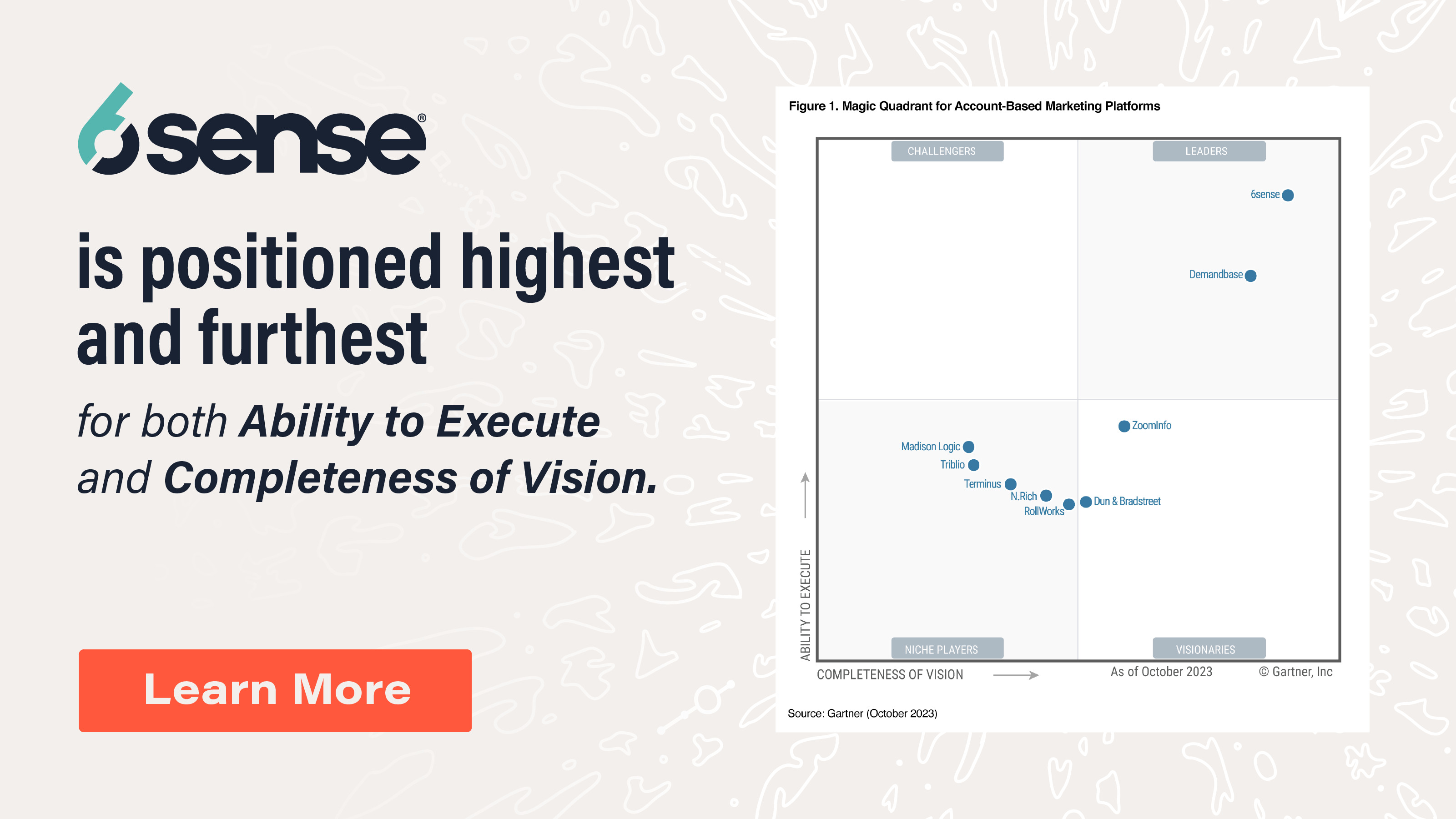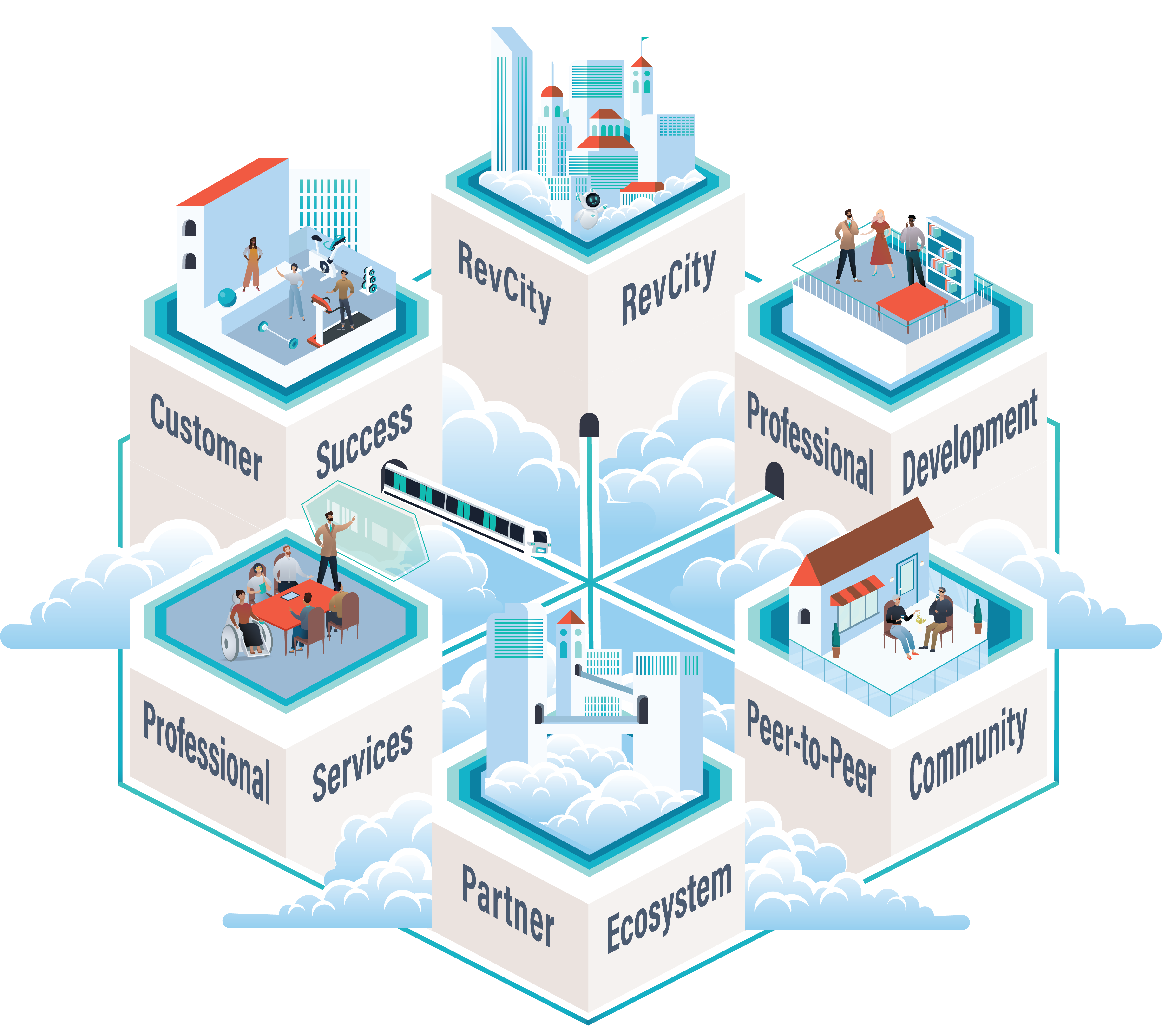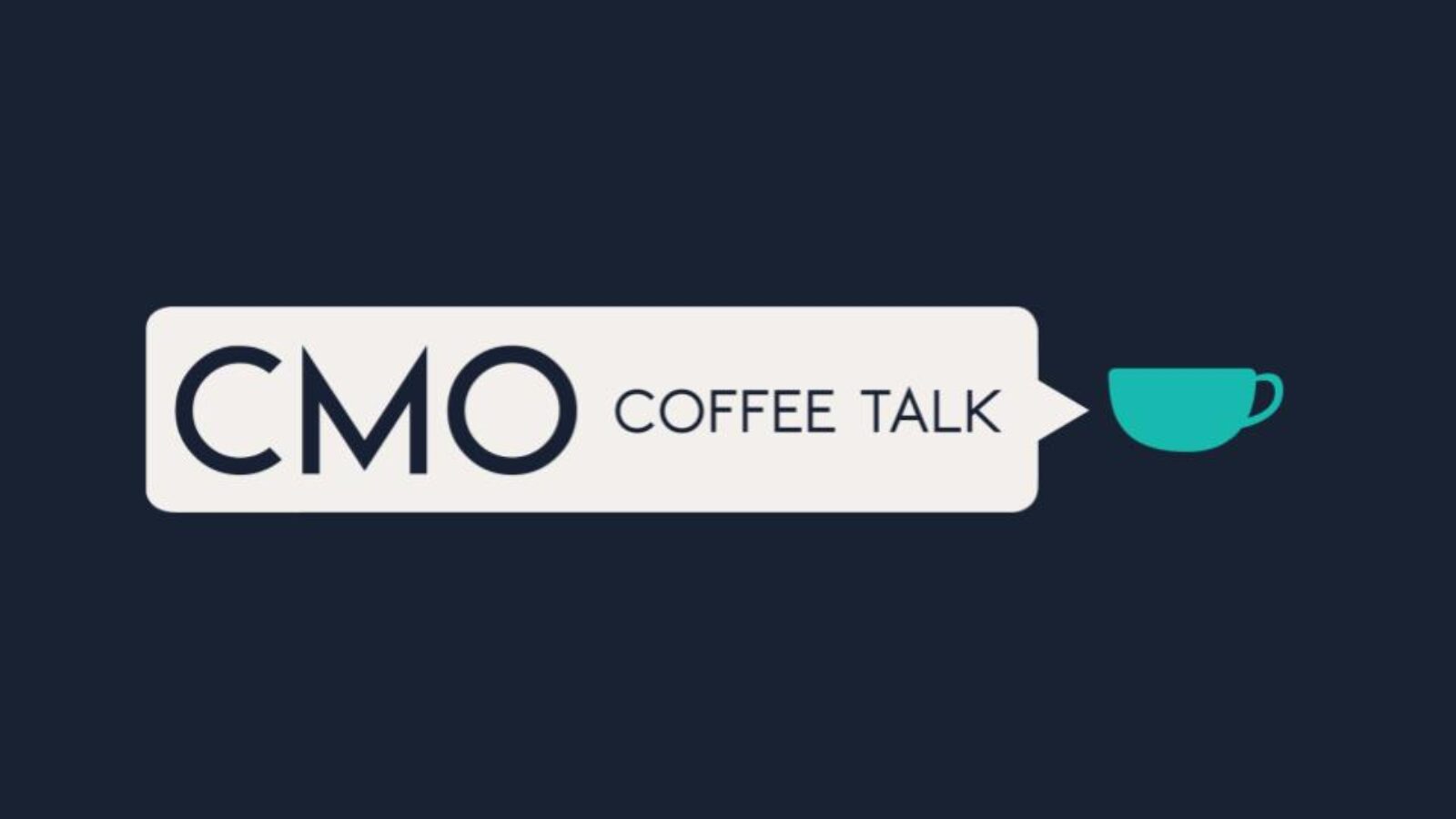Want to help your organization accelerate sales productivity, velocity and results? According to Pablo Dominguez, start with these four best practices:
- Sales enablement must be championed from the top of the organization down
- You need a solid sales methodology (Challenger, Miller Heiman, Value Selling, etc.) as your foundation
- Alignment must exist consistently across all revenue and customer-facing departments
- This must be an ongoing program (not just a training or sales kick-off topic)
Want more best practices from today’s leading B2B CMOs? Here are highlights from last week’s CMO Coffee Talk discussion.
Sales engagement re-alignment should happen regularly top/down to ensure expectations remain the same and the sales enablement charter does not get derailed. (Isabelle Papoulias)
Our CRO brought in a new methodology late last year and I think did it right – top down buy in and weekly accountability meetings to make sure that all depts – Ops, Marketing, CS, Sales – are adopting the messaging and the sequencing and activating them in the right way. (Gina Hortatsos)
Your sales methodology needs to be baked into CRM, and marketing needs to be trained on the process so they speak the same language. (Jen Jones)
“If you have a deep dark secret you want no one to know about, put it in your sales newsletter. No one will ever know about it…” (anonymous)
We built a hybrid methodology, starting with our ICPs and solution value. The build process started with a 4 day summit where the sales, marketing, and product execs were locked in a room and we wrote it together. From there, it was operationalized into marketing enablement materials, sales process, CRM, forecast calls, deal reviews, rep scorecards, etc. (Sara Larsen)
Role Playing is often never addressed in sales enablement efforts, a major gap. (David Gray)
Roll out new sales enablement programs with a beta group first, get feedback and establish credibility for the full rollout. (Bill Hobbib)
We took the word “sales” out of enablement – it’s company enablement including SAs/SEs, Sales and Customer Success. And some of the materials are customer facing as well – training our customers how to use a new module or major feature. (Helen Baptist)
Let sales pay for sales enablement tools, methodologies, etc. They are 10X more likely to get the budget, then marketing can help manage it. (Pablo Dominguez)
I have had really good luck with a more collaborative team approach to role playing, rather than putting one rep on the spot. Reps learn more, and hate it less than regular role playing. (Bryan Smith)
We gamified role playing, albeit “old-school style”, things like pulling a setting out of a hat and tossing toys around to the next person to take part, just simple stuff to keep people actively engaged. Would be interesting to think about how to do that virtually. (Tisha Hulburd)
Product marketing is stories & insights, sales enablement turns that into a customer-centric pitch (Pablo Dominguez)
We don’t currently have a formal role entitled “Sales Enablement”. It’s really a function of all of our roles, one of many tools we have in our arsenal to help sales sell. (Theresa Freas)
Need to have continuous reinforcement – in the weekly forecast, quarterly training goals, weekly deal reviews, CRM processes, content deliverables. One of the hardest things: everyone using the same language. No variations. And we would bring the sales trainers back to the forecast reviews and deal reviews at random times to reinforce the language, process, etc. (Sara Larsen)
Measurable and rewardable goals for First Line Managers/Sales Managers etc. against key training behaviors are a good way to hold people accountable. (Helen Baptist)
I have every marketer on my team run through the sales enablement program, and this year we are building out a specific marketing enablement track. (Jen Jones)
I’ve always believed that sales needs to own the enablement function as sales management, top to bottom, is responsible for holding the reps accountable to adoption – with lots of support and alignment across the org. (Dwight Griesman)
Buyer enablement? The buyer is in control of their buying journey more than ever (more than sales), and our role is to help them make that journey as easy and useful as possible. (Isabelle Papoulias)
It’s hard to convince sales they should use a methodology when they are getting results. Frustrating that they can’t think how much more they could sell and how much more predictable their funnel would be if they aligned to some methodology. (anonymous)
We worked our way into getting sales to commit to an every-Friday-morning Product Marketing training. We stay very disciplined that it is only a product feature/benefit/solution selling discussion – really try to avoid it being perceived as a “Marketing Training” (Susan Corscadden)
I think w/ the move to digital selling we have a new opportunity to use the video and call recordings, and then curate the assets as best practice. (Sydney Sloan)
We do a weekly “Learning Lounge” that’s run by Product Management/Marketing that focuses on product/technology/partner insight to help sellers, and then we do a monthly “SMarketing” call that focuses on new content, materials and campaign info with the focus being how the content/materials can be used by sellers. (John Graff)
From a training perspective, I really have never seen anything work well outside of where ex-sellers train people. They have BEEN there. And I think if you’re a “trainer” who has never had to be on a call where you get your ass handed to you because you didn’t know the UVP … people don’t respect your guidance. (Andrea Lechner Becker)
For us, Sales Ops are in the regular cadence and trusted by sales, have many other functions (e.g., deal desk, commissions, daily reporting) that puts them in a position to help coordinate the enablement, even though content comes from product marketing, and have a shared perspective on the methodology and support of that methodology (tools, content, training, direct support) (Michael Ni)
In my experience, when sales enablement has been owned by depts other than sales, they try and get a bit too clever with the enablement process. Great Sales Enablement pros understand marketing and product marketing messaging and know how to condense it down for their seller audience. (Rebecca Takada)
I agree that sales likes to hear from sales. Our sales enablement team is also in sales. What I struggle with is ensuring we keep up with ensuring our message stays aligned. And my OCD obsession with quality slides and not the Wild West of everyone creating their own decks, which dilutes message and inconsistency in prospect experience. I become the chief whackamole officer or slide enforcer. (anonymous)
I worked at a company that required sellers who were on the management track to spend at least six months in a sales enablement/operation role. The goal of that was for them to fully understand all the requirements of a sales leader and to have more of an appreciation for what goes into sales enablement, quota development, measurement, etc. (Carol Meyers)
All content is kept and updated in one place in SFDC. We also measure how the content is used at what stage via our own product. Weekly calls are also key for the rev team to use as a “huddle” on what worked, where help is needed and have guest speakers from time to time to inform the team of any topics that will be useful for them to sell. (Carlyn Manly)
We have moved to weekly LMS sessions for Sales in addition to monthly competitive battle card updates. Having regular “tests” for Sales ensures they digest the info. Our team does not use PPTs either but they do use FAQs and top qualifying questions. (Pam Cory)
Certification is key have a strong cert and reinforce process. And ensure the marketing team is all certified too. (Latane Conant)



